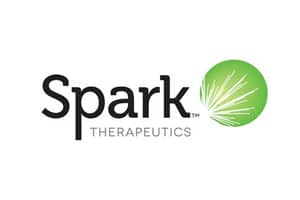 The FDA has chalked up another first for 2017, approving Spark Therapeutics’ gene therapy Luxturna for a sight-robbing disorder called biallelic RPE65-mediated inherited retinal disease (IRD).
The FDA has chalked up another first for 2017, approving Spark Therapeutics’ gene therapy Luxturna for a sight-robbing disorder called biallelic RPE65-mediated inherited retinal disease (IRD).
Luxturna becomes the first directly-administered gene therapy to get a green light in the US in a year that has also seen the first approval by the US regulator of two CAR-T therapies for blood cancers which involve genetically modifying cells outside the body.
Luxturna (voretigene neparvovec-rzyl) has been cleared to treat children and adults with IRD and according to FDA Commissioner Scott Gottlieb “reinforces the potential of this breakthrough approach in treating a wide-range of challenging diseases”.
“I believe gene therapy will become a mainstay in treating, and maybe curing, many of our most devastating and intractable illnesses,” he said, adding that the agency will start work on a policy framework – including the development of disease-specific guidance – “for the evaluation and review of gene therapy.”
RPE65-mediated IRD affects somewhere between 1,000 and 2,000 people in the US and a similar number in the EU and occurs when both parents pass on the RPE65 mutation to a child. Luxturna seeks to correct the genetic defect by delivering a normal copy of the RPE65 gene to cells in the retina.

The gene therapy was recommended for approval by a unanimous vote by an FDA advisory committee in October, and has been cleared by the regulator ahead of its target deadline of January 12. In a pivotal trial, 27 of 29 patients experienced improved sight over follow-up of at least one year after administration of Luxturna.
The big question now is pricing. Spark has not yet indicated what it will charge for the one-off procedure, but has indicated in the past a price of $1m per patient – assuming treatment of both eyes – may be supportable. It says it will reveal its plans when it launches Luxturna sometime in the first quarter of 2018.
Whether $1m would be acceptable and reimbursable by US healthcare payers remains to be seen, and Spark is in the unenviable position of becoming the pathfinder in trying to work out how the US healthcare system will accommodate gene therapies.
UniQure charged $1m for its Glybera (alipogene tiparvovec) product for lipoprotein lipase deficiency (LPLD) – the first gene therapy approved in Europe – but that product was withdrawn from the market this year due to a lack of demand.
GlaxoSmithKline took a more conservative approach with its Strimvelis gene therapy for immune-deficiency disease ADA-SCID last year, pricing it at $665,000, with a money-back guarantee if the therapy was unsuccessful. So far take-up has been painfully slow, however, in part because only one centre (in Milan) offers the treatment.
Novartis’ first-approved CAR-T therapy Kymriah (tisagenleucel) has been priced at $475,000 per course in the US, but a recent Bloomberg report suggests some patients are finding it difficult to get coverage for the treatment.




